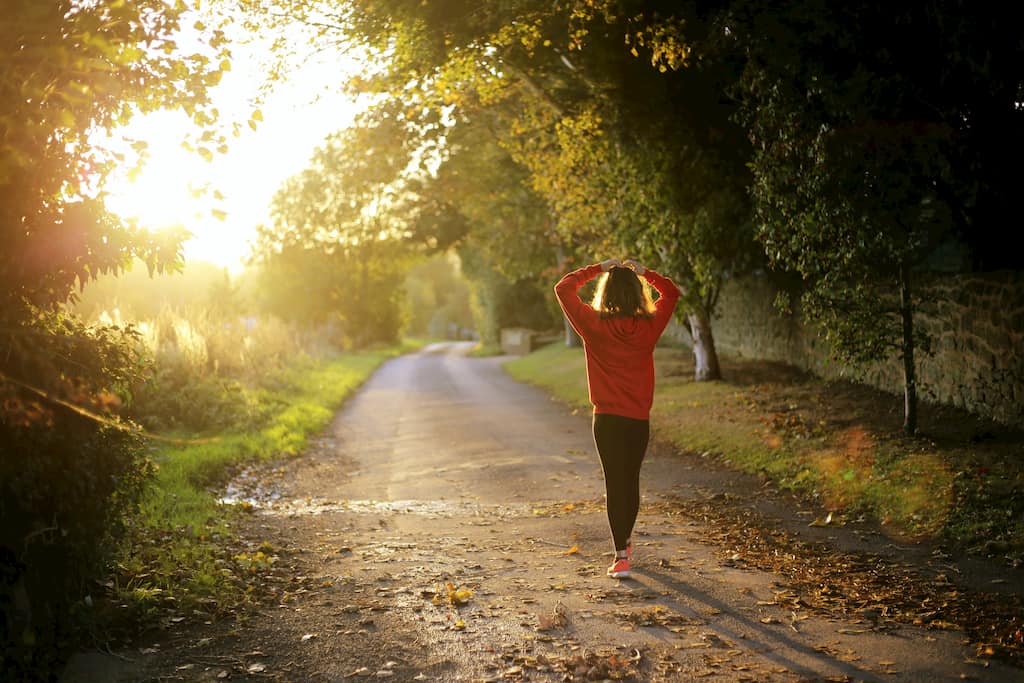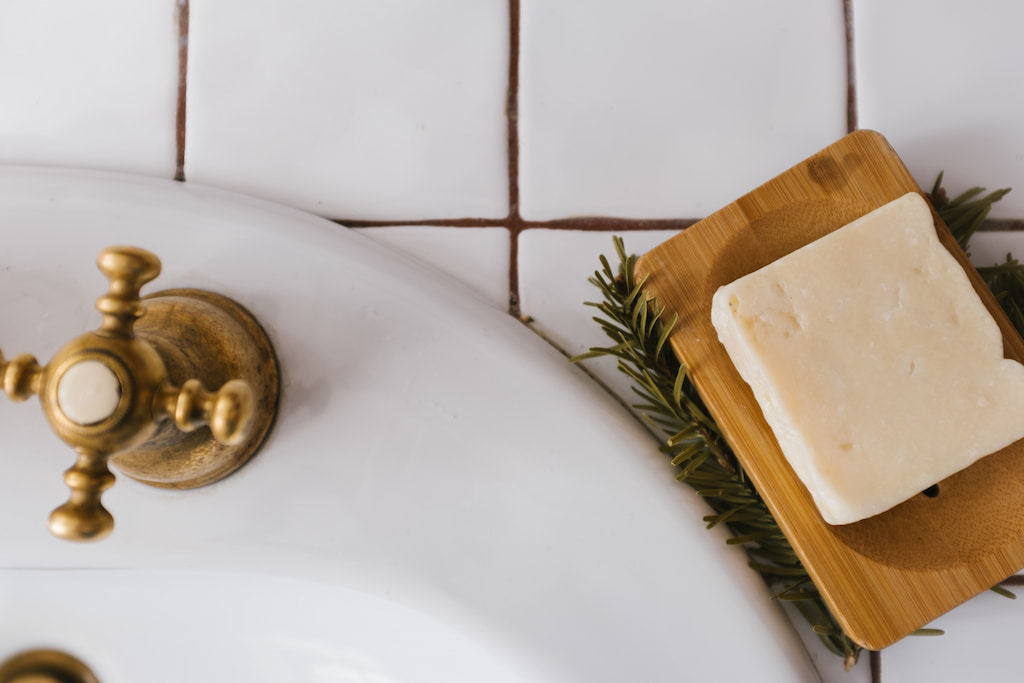Staying Safe During Difficult Times

Contents
- Feeling stressed and anxious during difficult times
- Be careful about the information you consume
- Tips for boosting your immune system and finding peace of mind
- Look after your gut health
- Hygiene, hygiene, hygiene…
- Take advantage of natural vitamin D
- Social support, one of the greatest tools for feeling safe
Saying that 2020 has been tough feels like an understatement. Unfortunately, the ride isn’t over for many of us, and as we continue to navigate the world without much certainty about what our lives will look like in the immediate future, it is only natural to seek guidance and a sense of reassurance. During these turbulent times, the message we are getting is often more focused on protecting ourselves through strict external measures, and less about how to strengthen ourselves from within.
For instance, each of us has the capacity to strengthen our immune system through consistent and healthy lifestyle habits. This does not stop the spread of viruses, but it may make us more resilient to them.

Feeling stressed and anxious during difficult times
One of the most important things to keep in mind is that being in a state of constant fear and anxiety affects your daily mood, and at a physiological level, puts a strain on your body.
When you experience strong emotions such as fear and anxiety, the sympathetic nervous system (SNS) contributes to the activation of what is known as the ‘fight or flight’ mode. In scientific terms, this means that the body shifts its energy resources toward fighting off a situation that we perceive as a threat, or fleeing to ensure survival. The SNS signals the adrenal glands to release certain hormones such as adrenaline and cortisol to prepare the body to respond to danger. These changes include taking blood supply away from areas of the body where it is not needed, an increase in the heart and breathing rates, changes in the digestive process and an increase of glucose levels in the bloodstream.
This defense mechanism is so primitive that it doesn’t distinguish a real threat from a perceived one. So minor, everyday stressors can unnecessarily activate the fight or flight response and set in motion a chain reaction of unpleasant physical symptoms such as panic attacks, palpitations, muscle tension, shortness of breath, headaches, insomnia and even fear of dying.

Be careful about the information you consume
Stress and fear play an important role in preserving our species; they only become a problem when our SNS is continuously activated due to constant exposure to these factors. And yet it seems that fear is the number one emotion being transmitted to us daily via our screens. In these unusual times, the non-stop flow of information–especially news that may come across as unclear, exaggerated or designed to instill panic–keeps us in a state of red alert, making our minds turbulent.
It is OK to stay up to date with well-rounded information regarding our safety, but fear should be switched off when it no longer serves a purpose. This is when the parasympathetic nervous system (PNS) will respond by turning off the stress or fear reaction and help us return to a state of balance and peacefulness.
Tips for boosting your immune system and finding peace of mind
To break the vicious cycle of fear and learn ways to manage it, it is essential that we start cutting down or getting rid of the sources that cause it, and instead calm our minds. As you go about your life, pay close attention to how you feel during and after being exposed to a piece of news for example. Do you feel more calm, inspired, confident, wise, energetic or clear? Or do you feel more tired, confused, restless, emotional, sluggish, anxious or depressed?
If the latter is true, remember that there are ways to calm your mind. A peaceful mind has space for dreams, creativity, clear plans and balanced opinions. Try meditation to help you to stay grounded. Meditation is healing for people. Plus, periods of silence obtained from meditation help us develop insight and wisdom and foster a deeper connection to our own intuition, something that cannot be outsourced. Guided meditations, breathing exercises, and relaxation techniques are all great ways to switch off the fear button. If you find that doing these on your own is challenging, we are here for you, to guide you at every step of the way with programs designed to help you find balance and inner peace, particularly in these uncertain times.

Look after your gut health
Another way to boost our immune system is by properly looking after our gut health. Gut flora refers to the world of microorganisms that populate our intestines. Our gut flora plays an important role not only in our metabolism but also in immune system protection. Experts in the field tell us that favorable bacteria provide direct protection for the lining of our large intestines to fight against disease-causing bacteria or other substances.
Experts therefore conclude that poor gut health leaves us vulnerable to disease. So, what harms gut flora and what keeps it healthy? The most obvious answer is our eating choices. The most harmful foods to our gut flora are those that are fried, processed, refined, containing antibiotics, preservatives, emulsifiers, flavor enhancers and artificial sweeteners. So it is not surprising that well-rounded, wholesome, high quality and ideally organic nutrition is best. It is also important to emphasize that besides consuming food with low nutritional value, other factors such as stress, lack of moderate physical activity, poor sleep quality, acid reflux drugs and antibiotics diminish gut health.
Speaking of moderate physical activity and sleep quality, let’s remember that they both help us to lead healthier and happier lives: they reduce our risk of stress and depression, boost our energy levels as well as our self-esteem and mood, and, in the case of physical activity, can reduce the risk of developing certain health conditions such as heart disease.

Hygiene, hygiene, hygiene…
A less discussed topic to keep our immune system strong is the practice of good ol’ basic hygiene. As in: wash your hands with natural soap and water when necessary — but there’s no need to be paranoid either. As we all have observed, the use of hand sanitizer has grown exponentially in the past few months, and although it is very easy and functional, it should be used only sparingly and not as a substitute for handwashing.
Two aspects of hand sanitizers that are usually overlooked are
1) triclosan is a common active ingredient in hand sanitizer (and other hygiene products) and may contribute to making bacteria resistant to antibiotics (which is rather problematic) and
2) the constant use of hand sanitizer can affect the body’s microbiomes: while they kill potentially dangerous microbes, they also alter the communities of beneficial bacteria on the skin. In simple words, hand sanitizer doesn’t discriminate good microbes from bad ones so it will most likely kill good bacteria that helps the body fight diseases, which will result in lower resistance to diseases and infections. So, if you’re concerned about what your hands touch, whenever possible say ‘no’ to hand sanitizer and instead wash your hands with water and a bar of natural soap.
Take advantage of natural vitamin D
Now, let’s move on to the soothing effects of nature. We know that spending time outdoors in the natural world and soaking up some natural vitamin D from the sun (while taking the right precautions of course) is a source of positive energy and peace. But here’s an interesting fact: we have special cells in our immune system called T cells that help fight against invading pathogens. Although the research is recent, it suggests that these cells, which are abundant in the skin, may be energized by sunlight. The senior investigator of one such research, Gerard Ahern, PhD, associate professor in the Georgetown’s Department of Pharmacology and Physiology, says: “T cells, whether they are helper or killer, need to move to do their work, which is to get to the site of an infection and orchestrate a response. This study shows that sunlight directly activates key immune cells by increasing their movement.”
Spending time outdoors in nature may also bring other benefits: breathing in phytoncides. Phytoncides are airborne anti-microbial substances that trees release as a way to fight off disease and harmful substances. Studies have shown that breathing in phytoncides while walking in a forest has beneficial effects on human Natural Killer (NK) blood cells that help fight virus-infected cells, a tangible immune system boost that can last for up to 30 days. Whenever possible, do go outside and let nature and the sun ground you, energize you, recharge your batteries, elevate your vibrations and help you put aside your worries–even if only for a few minutes a day.

Social support, one of the greatest tools for feeling safe
Last but not least, connect with those close to your heart. Stay connected in a way that feels safe for you. People who feel socially supported are less susceptible to a range of physical and mental problems; this includes but is not limited to strengthened immune systems, better information processing, plus less anxiety and panic attacks.
We all know how comforting it feels to be in the company of the people we care about, people who lift our spirits. We also know that feeling supported by a social network can help ease pain and the physical symptoms of stress. Reach out to this social network in any way or form that feels safe for you. Remember that physical isolation does not have to mean social isolation. Today, there are various resources and ways to connect with loved ones, even if it is physically not possible. This is not a time to be practicing social isolation, you may practice physical distancing, but, even if sometimes you do not feel like it, try to be social. Have a video call or try an online game for a change to lift your mood.
To sum up, remember that there are different ways, natural ways, to support our own health and immune systems. It all starts with looking after our minds. We can initiate this process immediately with simple but firm choices: make consistent efforts to eat nutritious food, get quality sleep every night, include regular and moderate physical activity in our routine, follow basic hygiene, spend time outdoors in nature, stay in touch with our loved ones, and very importantly–as the British say, “Keep calm and carry on.”
Ruth Obando
Keep Reading
- English
- July 17, 2024
- 0





